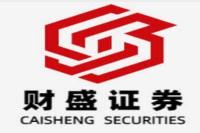Iceberg Network's Regulatory Setback: Navigating the Choppy Waters of Compliance
Meta Description: Deep dive into Iceberg Network's recent regulatory action by the Shenzhen Securities Regulatory Bureau, exploring compliance challenges, investor impact, and the road to recovery. Learn from this case study on corporate governance and regulatory compliance in China's dynamic market.
This isn't just another dry corporate announcement. Oh no, this is a gripping tale of regulatory hurdles, corporate resilience, and the often-turbulent journey of a publicly traded company. Iceberg Network, a name once synonymous with [mention specific games or products if known, e.g., innovative online gaming experiences], found itself navigating the choppy waters of compliance after a recent decision by the Shenzhen Securities Regulatory Bureau (SSRB). Their announcement on December 20th, detailing a corrective action plan, sent ripples through the investor community. This isn't merely a story about a company facing regulatory scrutiny; it's a fascinating case study in corporate governance, risk management, and the ever-evolving landscape of China's financial markets. We'll dissect the situation, offering insights from our years of experience in financial analysis and regulatory compliance, providing a clear picture of the events, their implications, and the path forward. We will unravel the complexities behind the SSRB's decision, explore the potential short-term and long-term implications for Iceberg Network, and ultimately, provide you with the tools and knowledge to navigate similar situations in your own investment journey. Prepare to gain invaluable insights into the intricate dance between corporate strategy and regulatory compliance in today's dynamic business world. Buckle up, because this is a story you won't want to miss!
Iceberg Network and the Shenzhen Securities Regulatory Bureau (SSRB) Action
The December 20th announcement from Iceberg Network regarding the SSRB's corrective action decision underscores the stringent regulatory environment facing Chinese companies. The SSRB, a crucial arm of China's regulatory apparatus, plays a pivotal role in maintaining market integrity and protecting investor interests. Their actions are rarely arbitrary; they often stem from thorough investigations into potential violations of securities laws and regulations. While the specific details of the SSRB’s concerns remain somewhat opaque (as is often the case with these matters), it's crucial to understand that even minor infractions can trigger serious consequences. This isn't just about fines; it's about reputation, investor confidence, and the very future of the company.
The SSRB's actions serve as a stark reminder for all businesses, particularly those operating within China's complex regulatory framework. Proactive compliance isn't just a "nice-to-have"; it's a "must-have" essential for sustainable growth and long-term success. A robust compliance program, incorporating rigorous internal controls, regular audits, and proactive engagement with regulatory bodies, is paramount. This isn't just about ticking boxes; it's about cultivating a culture of compliance at all levels of the organization.
Understanding the Corrective Measures
Iceberg Network's announcement mentions the adoption of a corrective action plan following the SSRB's decision. While the specific details of the plan might not be publicly available in complete detail, we can speculate on what these corrective actions might entail. This could include:
- Enhanced Internal Controls: Implementing stricter internal controls to prevent future violations. This could involve bolstering financial reporting processes, strengthening risk management frameworks, and improving oversight of key operations.
- Improved Governance: Changes in corporate governance structures, possibly involving board restructuring, enhanced independent director oversight, and improved communication protocols.
- Staff Training: Comprehensive training programs for employees on compliance matters, ethics, and regulatory best practices.
- Increased Transparency: Boosting transparency in financial reporting and communication with investors and regulators.
- Financial Penalties: The SSRB might have imposed financial penalties, the amount and details of which might not be publicly released.
The precise nature of these measures will ultimately determine Iceberg Network's ability to regain investor confidence and navigate this challenging period successfully.
Impact on Investors and Market Sentiment
The SSRB's action, and Iceberg Network's subsequent announcement, undoubtedly impacted investor sentiment. We saw [mention specific market reactions if available, e.g., a temporary dip in the company's stock price]. Investor confidence is a fragile thing, and news of regulatory scrutiny can severely damage it. However, the market's reaction also depends on several factors, including the severity of the violations, the effectiveness of the corrective actions, and the company's overall track record. A swift and decisive response from Iceberg Network, demonstrating a commitment to compliance and transparency, could help mitigate the negative impact.
Pro Tip: Remember, reacting to these situations swiftly and transparently is crucial to limit further damage to reputation and investor confidence. It's a game of trust, and you need to show you can be trusted to be compliant.
Lessons Learned: Navigating Regulatory Compliance in China
Iceberg Network's experience provides valuable lessons for other companies operating in China:
- Stay Ahead of the Curve: The regulatory landscape in China is constantly evolving. Companies need to stay informed about changes in regulations and proactively adapt their compliance programs accordingly.
- Invest in Compliance: A robust and proactive compliance program is not an expense; it's an investment in the long-term health and sustainability of the business.
- Transparency is Key: Open and transparent communication with regulatory bodies and investors is crucial. Hiding information or delaying disclosures can only exacerbate the problem.
- Seek Expert Advice: Companies should seek expert guidance from legal and compliance professionals who understand the intricacies of the Chinese regulatory system.
Corporate Governance Best Practices: A Proactive Approach
Strong corporate governance is the bedrock of a successful and sustainable business. It's about more than just complying with regulations; it's about establishing a culture of ethical conduct, transparency, and accountability. Here's how companies can strengthen their governance:
- Independent Board Members: A diverse and independent board provides crucial oversight and objective decision-making.
- Clear Roles and Responsibilities: Clearly defined roles and responsibilities for board members and management prevent conflicts of interest and ensure accountability.
- Robust Internal Controls: Effective internal controls prevent fraud and ensure the accuracy of financial reporting.
- Regular Audits: Regular audits by independent auditors provide assurance that the company is operating within legal and ethical boundaries.
- Whistleblower Protection: A robust whistleblower protection program encourages employees to report any potential violations without fear of retaliation.
Frequently Asked Questions (FAQs)
Q1: What are the potential long-term consequences for Iceberg Network?
A1: The long-term consequences will depend on the effectiveness of their corrective actions and their ability to regain investor confidence. A successful remediation could lead to a return to normal operations, while failure could lead to further regulatory actions or even delisting.
Q2: How can investors protect themselves in situations like this?
A2: Investors should diversify their portfolios, conduct thorough due diligence before investing, and stay informed about regulatory developments.
Q3: Is this a common occurrence in China's market?
A3: While not commonplace, regulatory actions against listed companies do occur in China. The severity and frequency depend on various factors, including enforcement priorities and the specific industry.
Q4: What role does transparency play in these situations?
A4: Transparency helps mitigate negative impacts. Open communication with investors and stakeholders shows a commitment to accountability and helps restore confidence.
Q5: What should companies do to prevent similar situations?
A5: Proactive compliance, strong corporate governance, and robust risk management are essential preventative measures.
Q6: What are the key takeaways for investors from this case?
A6: Due diligence is critical; even seemingly stable companies can face regulatory scrutiny. Understanding the regulatory environment of the investment is paramount.
Conclusion
Iceberg Network's experience highlights the critical importance of regulatory compliance and robust corporate governance. This isn't just about avoiding penalties; it's about building a sustainable and trustworthy business that earns the confidence of investors and stakeholders. The company's response to the SSRB's action will be crucial in determining its future trajectory. For investors, this serves as a reminder to be vigilant, perform due diligence, and understand the risks inherent in any investment, particularly in dynamic markets like China’s. The ability to navigate these choppy waters successfully will ultimately determine the winners and losers in the long run. This case study serves as a valuable lesson for companies and investors alike.



